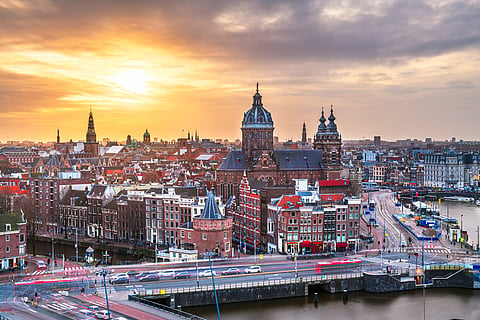
- Destinations
- Experiences
- Stay
- What's new
- Celebrating People
- Responsible Tourism
- CampaignsCampaigns
- SubscribeSubscribe
- Buy Now

Overtourism is currently a major problem in many countries. As the number of visitors to these places increases, the negative effects of mass tourism, such as pollution and damage to tourist sites, are becoming more evident. This puts a lot of pressure on the affected areas to manage an overwhelming number of tourists. For example, to regulate the crowds, Italy is implementing strict procedures and combating the negative consequences of mass tourism by imposing significant restrictions on visitors. Spanish city Seville is considering implementing a fee for tourists visiting the Plaza de Espana to regulate the high number of visitors to this public space. Residents of several cities have been staging protests against overtourism. The latest to join the growing number fed up of tourism of cities is Amsterdam.
The government of Amsterdam has recently announced a set of new measures to tackle the issue of overtourism. These measures include a ban on the construction of nearly all new hotels and a cap on the number of tourists allowed to stay overnight in the city each year. According to the new policy, no new hotels will be permitted to be built unless an existing hotel closes down.
Moreover, if a new hotel is approved, it must be more modern and sustainable, and the city is encouraging developers to choose locations outside the city. However, this rule will not apply to hotel projects that have already received permits. The main objective of these measures is to address the negative impact of tourism on Amsterdam's infrastructure and to promote a more sustainable approach to tourism in the city.
The city council of Amsterdam implemented a policy called "Tourism in Balance in Amsterdam" last year, which restricted the number of visitors allowed in the city per year, including overnight stays and day visits. As the visitor count in 2023 was 20,665,000, this new policy aims to reinforce the regulation.
In addition, Amsterdam launched its "Stay Away" initiative in 2023, targeting a specific group of visitors who engage in rowdy behavior. The initiative is specifically aimed at British men aged between 18 and 35, who often visit the city for their "stag" (bachelor) parties and cause disturbances to the local residents.
The City of Amsterdam has recently announced on its website that it is taking measures to maintain the quality of life in the city by limiting the number of tourists and preventing nuisances caused by tourism.
To achieve this, the city is taking various steps such as setting a maximum limit on the number of visitors, combating bachelor parties and organized pub crawls, restricting river cruises, distributing tourism more evenly across the city, converting hotels into homes or offices, introducing earlier closing times for bars and clubs in certain areas of the city centre, and banning the smoking of cannabis on the street in certain parts of the city centre. If you are planning to visit the city, read more about their policies on tourism here.
